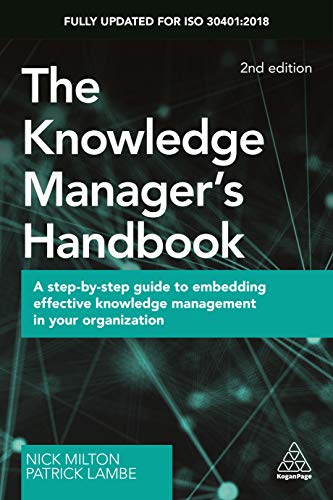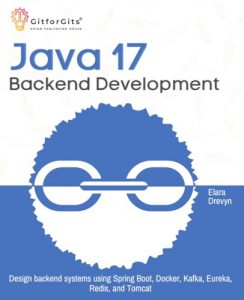The Knowledge Manager’s Handbook: A Step-by-Step Guide to Embedding Effective Knowledge Management in your Organization
Written by Nick Milton and Patrick Lambe, this comprehensive handbook serves as an essential guide for anyone looking to embed effective Knowledge Management (KM) practices within their organization. It offers practical, actionable steps designed to facilitate the integration of KM strategies amidst workplace dynamics. The insights provided are backed by real-world examples and a well-structured approach that encourages both individual and organizational learning. Every professional aspiring to enhance their organization’s knowledge capabilities will find invaluable lessons within its pages.
Making Knowledge Management Clickable: Knowledge Management Systems Strategy, Design, and Implementation
Authors Joseph Hilger and Zachary Wahl delve into the critical elements of designing and implementing Knowledge Management Systems (KMS) through this insightful text. This book is particularly valuable for IT specialists and KM practitioners as it illustrates how to create systems that genuinely resonate with organizational needs. The writing engages readers with its clarity and practical examples, making it a great resource for those looking to modernize their KM initiatives. Capturing the essence of user-centric design in KM, it’s a must-read for professionals eager to make knowledge accessible and actionable.
Knowledge Management in Theory and Practice, fourth edition
Kimiz Dalkir’s fourth edition of “Knowledge Management in Theory and Practice” is the quintessential text covering both theoretical frameworks and practical applications of KM. This edition is updated with the latest trends and technologies that significantly impact how organizations manage knowledge today. Dalkir’s expertise shines through, offering readers profound insights into establishing a KM culture that promotes innovation and competitive advantage. Anyone involved in knowledge-heavy fields will find the synthesis of theory and practice incredibly useful.
Mastering Knowledge Management Using Microsoft Technologies
Tori Reddy Dodla’s upcoming work highlights the effective use of Microsoft 365 tools tailored for Knowledge Management practitioners. This book promises to be a groundbreaking resource for organizations already leveraging Microsoft’s ecosystem. Dodla reveals secrets to maximize these technologies, with practical tips and strategies that enhance collaboration and knowledge sharing. Any reader looking to harness the full potential of Microsoft in KM initiatives will find this book indispensable.
Lean Knowledge Management: How NASA Implemented a Practical KM Program
In “Lean Knowledge Management,” Roger Forsgren explores how NASA successfully integrated Lean methodologies into its KM program. This unique perspective provides valuable insights into how organizations can optimize knowledge processes by minimizing waste and maximizing value. Forsgren’s detailed account of challenges faced and solutions discovered makes this book relatable and informative for all professionals interested in KM. His take on NASA’s approach signifies critical lessons on how KM drives operational excellence.
Knowledge Management in Organizations: A critical introduction
Hislop, Bosua, and Helms present an in-depth examination of the principles and practices of Knowledge Management within organizations. This introduction challenges readers to think critically about traditional KM frameworks and positions them to reconsider their current practices. With an emphasis on practical examples, this book encourages aspiring KM professionals to adopt a critical lens when evaluating KM strategies, making it an essential read for anyone involved in managing knowledge within organizations.
Knowledge Management: Systems and Processes in the AI Era
In this forward-thinking book, authors Irma Becerra-Fernandez, Rajiv Sabherwal, and Richard Kumi examine the impactful relationship between Artificial Intelligence and Knowledge Management. As AI continues to reshape our professional landscapes, this book offers an analysis of its implications on KM systems and processes. It is crucial for professionals to grasp how to blend AI capabilities with KM practices, making this text a must-read for those anticipating the future of knowledge work.
The Complete Guide to Knowledge Management: A Strategic Plan to Leverage Your Company’s Intellectual Capital
This book by Edna Pasher and Tuvya Ronen provides a thorough exploration of strategic KM initiatives, empowering organizations to leverage their intellectual capital effectively. The guide presents meticulous frameworks and strategic plans suitable for any organization at any level of KM maturity. By grounding the principles of KM in strategic thinking, it enables readers to foster organizational growth and innovation through knowledge. Its comprehensive approach makes it a fantastic resource for business leaders.
Knowledge Management in Theory and Practice, third edition
Kimiz Dalkir’s third edition of “Knowledge Management in Theory and Practice” revisits the foundations established in its predecessor while incorporating advancements in the field. This edition serves as both a reference and a learning tool, making it accessible for newcomers and seasoned professionals alike. Dalkir’s analysis of the evolving landscape and its implications for KM practices remain relevant and insightful. As we witness rapid changes in our working environment, this book remains a critical resource for understanding KM’s role.
Organising Knowledge: Taxonomies, Knowledge and Organisational Effectiveness
Patrick Lambe’s insightful exploration into how taxonomies can influence knowledge organization and enhance organizational effectiveness makes “Organising Knowledge” an enlightening read. The book dissects how proper classification of knowledge can propel organizations towards improved performance and compliance. Lambe’s perspective on essential KM practices showcases practical possibilities, positioning this read as a valuable resource for knowledge professionals dedicated to fostering a culture of organized knowledge sharing.














































